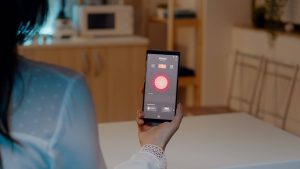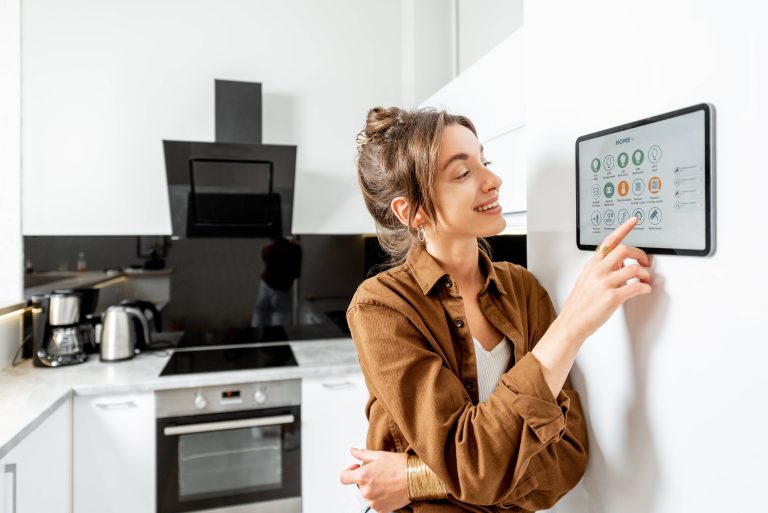
In the not-so-distant past, virtual assistants were a mere curiosity, a glimpse into a futuristic world portrayed in sci-fi movies and novels. Today, they have established themselves as indispensable aspects of our daily lives, integrated seamlessly into our smartphones, smart speakers, and home automation systems. But this is just the beginning. The future of virtual assistants in smart homes promises a revolution that will redefine our interaction with technology and transform our living spaces into highly intelligent, responsive environments.
A Brief Evolution
To appreciate the future trajectory of virtual assistants, it’s essential to understand their evolution. Virtual assistants like Siri, Google Assistant, Amazon’s Alexa, and others began as simple voice-activated tools that could answer queries, set reminders, or play music. With advancements in artificial intelligence (AI) and natural language processing (NLP), these assistants have become more sophisticated, capable of understanding and executing complex commands.
However, their current state, while impressive, is still a stepping stone to a more integrated, intuitive future where virtual assistants will not just respond to commands but anticipate our needs, learn from our habits, and provide seamless interaction across all smart home devices.
The Emergence of Hyper-Personalization
One of the most anticipated advancements in virtual assistants is the shift towards hyper-personalization. Currently, virtual assistants can recognize individual voices and provide personalized responses. The future will see them leveraging advanced AI and machine learning algorithms to analyze vast amounts of personal data, ranging from daily routines to preferences and even health metrics. This data-driven approach will allow virtual assistants to create highly personalized experiences.
Imagine a morning routine where your assistant not only wakes you up at the optimal time, considering your sleep cycle, but also starts brewing your preferred coffee blend, adjusts the thermostat to your liking, and queues up a news briefing tailored to your interests. This level of personalization will make virtual assistants indispensable for managing everyday tasks and optimizing overall well-being.
Enhanced Interaction and Communication
Future virtual assistants will also exhibit more natural and intuitive forms of interaction. Current models still face challenges in understanding nuanced human communication, but advancements in NLP and contextual understanding will bridge these gaps. Assistants will be capable of engaging in more human-like conversations, interpreting tone, emotion, and context with a higher degree of accuracy.
Moreover, virtual assistants will extend beyond voice and text to include visual and tactile interactions. Imagine a holographic assistant that projects into your living room, providing a more immersive experience that can demonstrate how to perform tasks or offer interactive visual aids. This multi-modal interaction will cater to various user preferences and enhance accessibility, making smart home technology more inclusive.
Integration with IoT and Smart Devices
The smart home concept revolves around interconnected devices that communicate and work together to create a cohesive living environment. Future virtual assistants will act as central hubs for smart home ecosystems, orchestrating the operation of various internet-of-things (IoT) devices.
With the proliferation of IoT, the number of connected devices in the average home is set to skyrocket. Virtual assistants will manage everything from lighting and heating to security systems and kitchen appliances, ensuring optimal performance and energy efficiency. They will also facilitate seamless interoperability between devices from different manufacturers, breaking down the silos that currently exist in many smart home setups.
Proactive Healthcare and Wellness
Health monitoring and wellness management are areas where virtual assistants are poised to make significant strides. The integration of AI-driven assistants with health IoT devices, such as wearables, smart scales, and even connected medical devices, will enable real-time monitoring and actionable insights into users’ health.
Virtual assistants of the future will not only remind you to take your medications or schedule doctor’s appointments but will also analyze your health data to detect patterns and anomalies. They could alert you to potential health issues before they become serious, provide personalized diet and exercise advice, and even coordinate with healthcare providers for more efficient care management.
Security and Privacy Challenges
As virtual assistants become more pervasive and intelligent, security and privacy concerns will undoubtedly come to the forefront. The vast amounts of personal data collected by these assistants present attractive targets for cybercriminals. Therefore, robust encryption, data anonymization, and stringent privacy policies will be crucial to safeguard users’ information.
Manufacturers and developers will need to adopt a security-first approach, incorporating advanced security measures and transparent privacy practices. Users will also demand more control over their data, including the ability to easily understand what is being collected and how it is used.
Ethical Considerations
The future of virtual assistants also raises important ethical considerations. As these systems become more integrated into our lives, questions around dependency, autonomy, and the impact on human relationships will arise. There is also the issue of ensuring equitable access to these advanced technologies, preventing a digital divide where only certain segments of the population can benefit from these innovations.
Developers and policymakers must work together to address these ethical challenges, ensuring that the benefits of virtual assistants are realized without compromising human values and societal norms.
Conclusion
The future of virtual assistants in smart homes holds unparalleled potential to transform the way we live, work, and interact with our environments. Through hyper-personalization, enhanced communication, seamless IoT integration, and proactive healthcare support, virtual assistants will move from being reactive tools to proactive partners in our daily lives.
However, as we move towards this intelligent, interconnected future, we must navigate the challenges of security, privacy, and ethical considerations. By doing so, we can ensure that the future of virtual assistants will not only be technologically advanced but also aligned with the principles of safety, privacy, and equity. The journey ahead is exciting, and the smart homes of tomorrow will be a testament to the boundless possibilities of human ingenuity and technological innovation.







